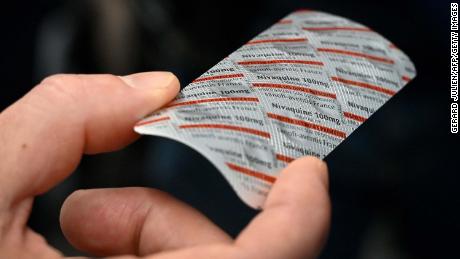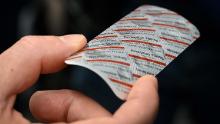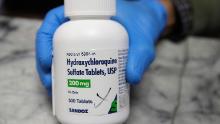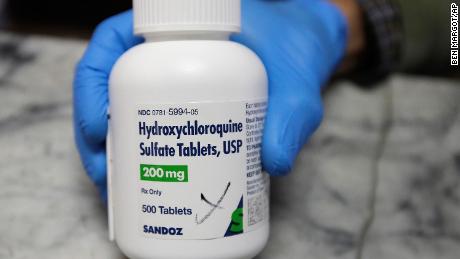“This provides evidence that hydroxychloroquine does not apparently treat patients with Covid 19,” said Dr. Paul Offit, an infectious disease specialist at Children’s Hospital of Philadelphia. “Even worse, there were side effects caused by the drug — heart toxicities that required it be discontinued.”
Trump has said that hydroxychloroquine shows “tremendous promise” and has made it sound like the drug is harmless.
“I think it’s going to be great,” Trump said at a White House briefing on March 19.
“What do you have to lose? Take it,” he said on April 4.
Physicians have warned that while Trump is enthusiastic about the drug, it still needs to be studied to see if it works and if it’s safe.
“People can claim what they want, but the proof is in the pudding, and this is the pudding,” Offit said.
In the French study, doctors looked back at medical records for 181 patients with Covid-19 who had pneumonia and required supplemental oxygen. About half had taken hydroxychloroquine within 48 hours of being admitted to the hospital, and the other half had not.
The doctors followed the patients and found there was no statistically significant difference in the death rates of the two groups, or their chances of being admitted to the intensive care unit.
The study also raised important safety concerns about hydroxychloroquine.
In the study, eight patients who took the drug developed abnormal heart rhythms and had to stop taking it.
Abnormal heart rhythms are a known side effect of hydroxychloroquine, which has been used for decades to treat patients with diseases such as malaria, lupus and rheumatoid arthritis.
Doctors in Sweden and Brazil have sounded warnings about chloroquine, a very similar drug, because of heart problems.
In the new study, among the 84 patients who took hydroxychloroquine, 20.2% were admitted to the ICU or died within seven days of taking the drug. Among the 97 patients who did not take the drug, 22.1% went to the ICU or died.
The difference was not determined to be statistically different
Looking just at deaths, 2.8% of the patients who took hydroxychloroquine died, and 4.6% of the patients who did not take it died. That difference was also not found to be statistically significant.
“These results do not support the use of [hydroxychloroquine] in patients hospitalised for documented SARSCoV-2-positive hypoxic pneumonia,” the study authors wrote.
The study was published Tuesday on medRxiv.org, a pre-print server founded by Yale University, the journal BMJ and Cold Spring Harbor Laboratory. Studies published on this website have not been peer reviewed.









